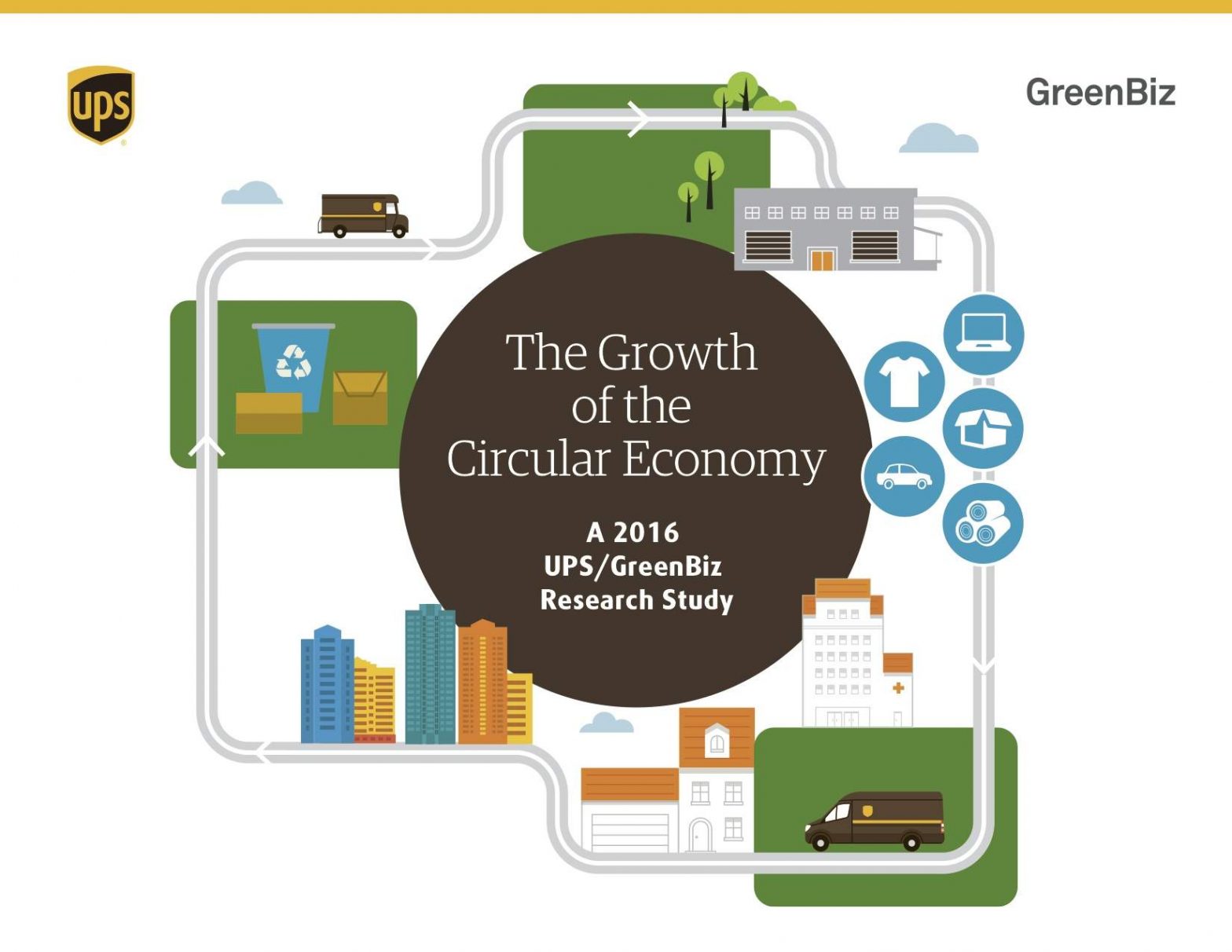
Photo: UPSGreenBiz-study
Technology sector will drive the adoption of the circular economy
04 April 2016
by Nick Michell
Around 86 percent of sustainability executives surveyed believe that the circular economy will be important to their business two years from now, nearly double the amount from two years ago, according to findings from The Growth of the Circular Economy, a study from UPS and GreenBiz.
Respondents project the biggest growth in the adoption of the circular economy model will come from the technology sector, especially electronics such as computers and cell phones, as take-back systems and product reuse are most easily integrated in those models.
“This growth in importance suggests that companies are placing greater emphasis on taking a life-cycle approach to understanding the total impact of their products and operations across their entire value chain,” Ed Rogers, Senior Global Director of Sustainability, UPS, told Cities Today. “Macro global trends such as population growth, resource scarcity, climate change, impending regulation, and zero-waste initiatives are likely driving this increased focus.”
The online study, conducted by the GreenBiz Group in partnership with UPS, captures the sentiments of sustainability executives and thought leaders to provide a deeper understanding of the business drivers and challenges associated with the circular economy.
Nearly three in five respondents state that their organisation is implementing circular economy principles in at least one of its product lines or service offerings.
Yet despite the prevalence of circular economy principles integrated into products and services, few companies stand out as leaders. Interface (21 percent) and Patagonia (16 percent) were the only two companies referenced with unaided recall when asked to identify those that come to mind when thinking about circular economy.
“The single greatest barrier to adopting circular economy principles, cited by 38 percent of respondents, was an insufficient business case,” added Rogers. “This isn’t surprising–there must be an attractive financial business case which fully accounts for cost and complexity of logistics, disassembly, repurposing, remanufacturing, etc. The financial benefits for supply chain players in a circular economy must be equal to or better than what is possible with the conventional model of brand new products being made to replace broken or obsolete items. The companies that stand out as leaders do so because they have taken steps to establish the business case, such as working it into their brand identity.”
The research asserts that logistics can play a critical role in implementing a successful and sustainable circular strategy. About 97 percent of respondents claim logistics as either very important (87 percent) or somewhat important (10 percent) to transitioning to a circular economy.
“At UPS, we use our expertise in logistics to help enable and facilitate the circular economy,” said Rogers. “As this research shows, focusing on ‘first mile’ logistics is crucial to helping businesses implement a cost-effective circular economy. UPS partners with customers to implement seamless take-back systems that include turnkey packaging, pickup services and pre-paid return labels. Taken together, all of these assist in the reverse logistics processes needed for a successful circular economy.”














